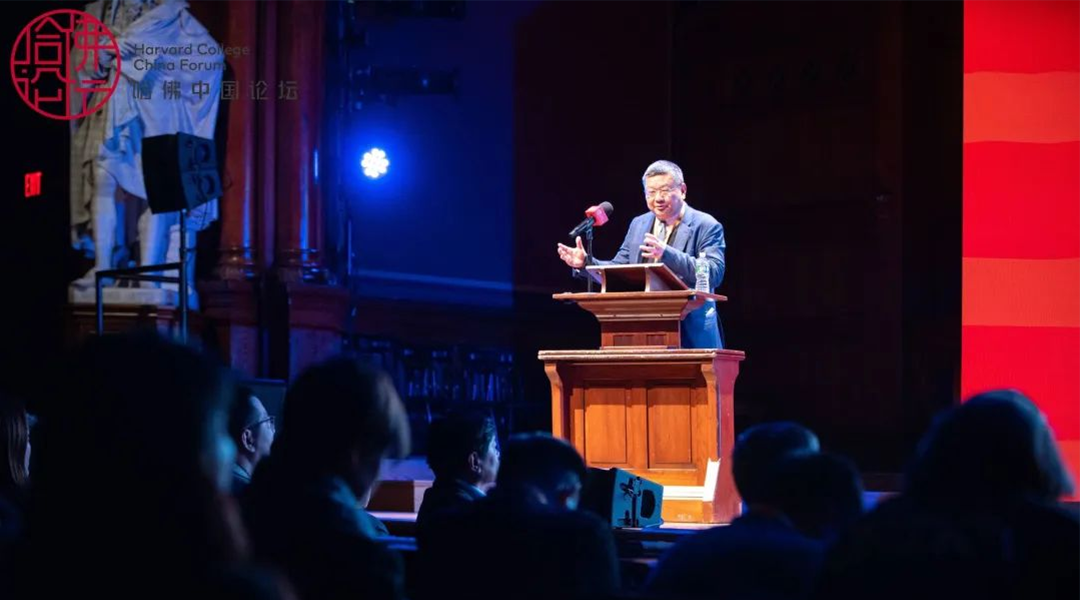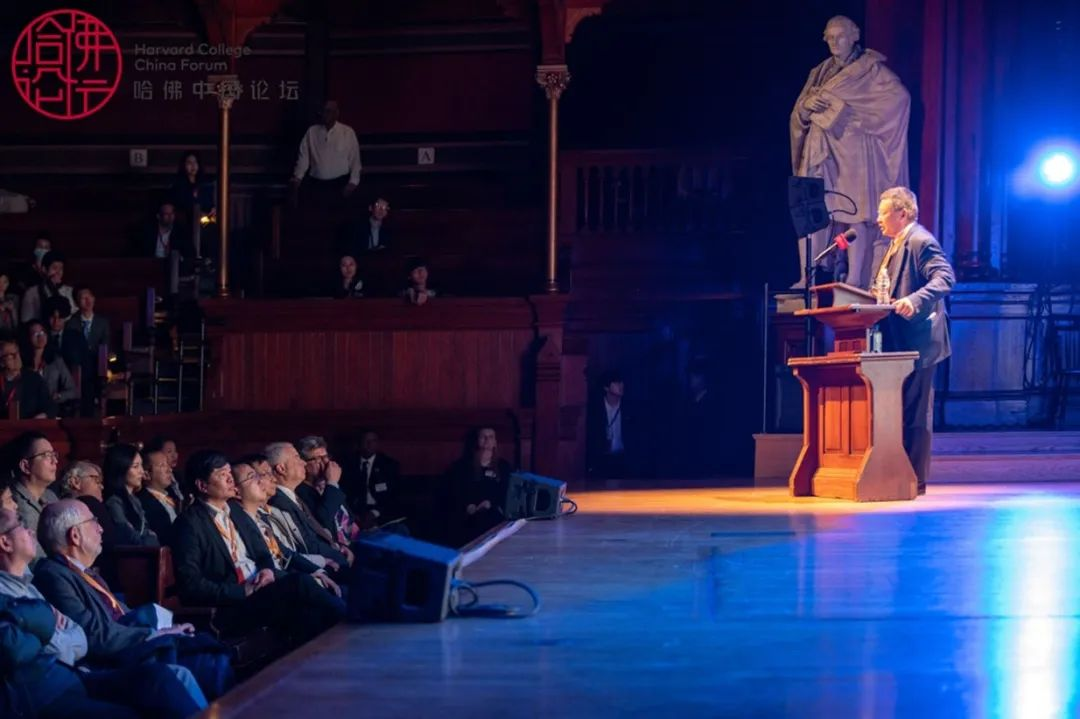

CKGSB Founding Dean and Professor of China Business and Globalization, Dr Xiang Bing, delivered the first keynote speech at the renowned Harvard College China Forum on April 7 at Harvard University in Massachusetts. Dean Xiang shared his views towards the US-China bilateral relationship and its role in the global economy to over a thousand students from and business elites. Despite tensions between the world’s two largest economies, Dean Xiang remains hopeful about the future of US-China relations.
Dean Xiang opened with the commonalities of both countries. According to his study, neoliberalism – initiated by Margaret Thatcher in 1979 and embraced by the Ronald Reagan’s administration in 1981 – was used by both the US and China as their growth model, permitting them to make outstanding contributions to the world’s booming GDP. This subsequently generated huge global wealth and ushered in a new wave of globalization, as evidenced by increased global trade and investment and falling poverty rates. From 1979 to 2021, both countries were the greatest contributors to global total GDP growth (China at 20.1% and the US at 23.6%), according to the World Bank. Additionally, according to data from the National Bureau of Statistics of China, from 2013 to 2021, the average contribution of both countries to global economic growth was 57.2% (China accounted for 38.6%, and the United States accounted for 18.6%).
Despite this, Dean Xiang added that both countries face severe income and wealth inequality and diminishing social mobility. In 2021 the Gini coefficient for China and the United States both just surpassed the warning line of 0.4, standing at 0.4949 and 0.466, respectively (a Gini coefficient of 0 reflects perfect equality). Furthermore, China and the US fell far behind Nordic countries, such as Denmark, Norway, and Finland, on the World Economic Forum’s Global Social Mobility Index 2020, ranking 27th and 45th, respectively.
Dean Xiang added that although China is the world’s second-largest economy, a significant gap still exists between China and the US, in terms of industrial added value, GDP per capita, and achievements in scientific research. He also rejected some of the common terms that describe the future US-China relationship, notably the “Thucydides Trap” – popularized by Graham T. Allison that describes the tendency towards war when an emerging power threatens to displace a ruling power, as well as the “Clash of Civilizations”, Samuel P. Huntington’s argument that cultural differences will mark post-Cold War conflicts put forward in his 1996 thesis.
“Although China is the world’s second-largest economy, a significant gap still exists between China and the US, in terms of industrial added value, GDP per capita, and achievements in scientific research.”
Dean Xiang concluded that to preserve global peace and stability, the world’s top two economic powers need to cooperate and eliminate mutual misunderstanding. They should work together to provide solutions on areas including global governance, trade and investment, climate change, poverty mitigation, and many issues facing humanity. As Dean Xiang said at the end of his keynote, “The worst-case scenario from collaboration between China and the US is probably better than the best-case scenario from confrontation and decoupling of the two.”
Founded in 1997, Harvard College China Forum is North America’s leading and longest-running student-run conference on China, to which CKGSB regularly features speakers. The forum engages leaders in business, academia, and politics in discourse that offers insights, generates new ideas and promotes a constructive dialogue on the challenges, trends, and issues affecting China, and continues to be one of a quickly shrinking number of organizations driving true bilateral and mutual understanding.